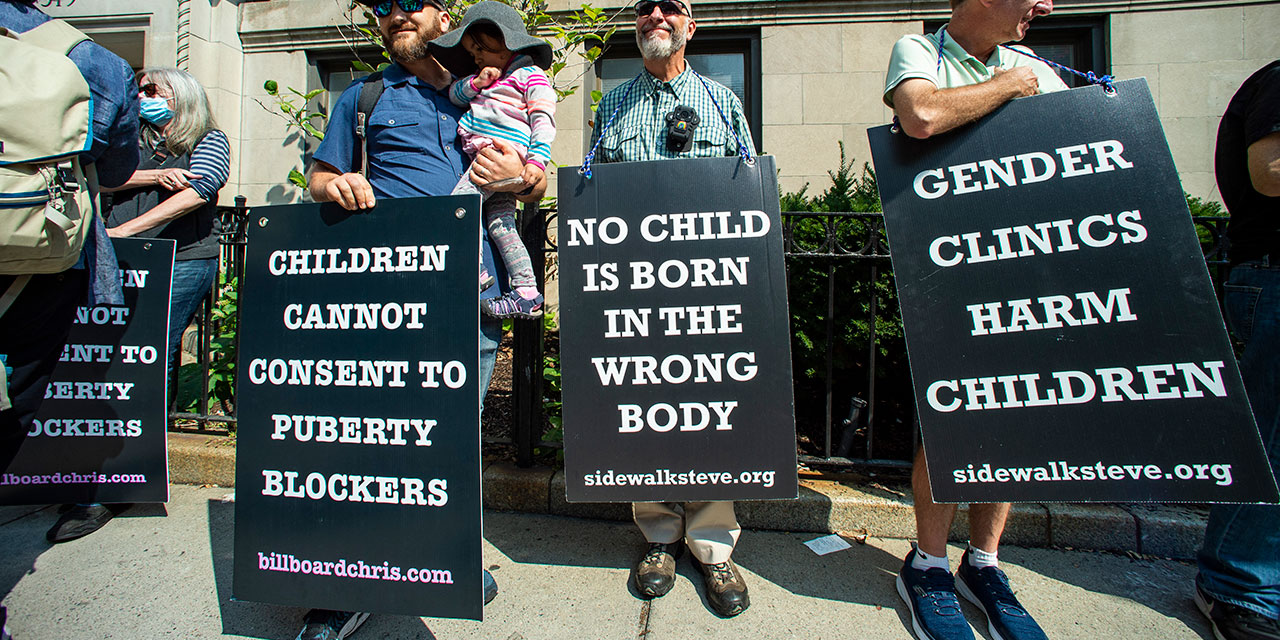Should parents investigated by the child-welfare system be treated more like criminal defendants? That seems to be the suggestion of a recent series of articles in ProPublica arguing that people charged with a crime at least have some constitutional rights, in contrast with those investigated for abuse or neglect.
“You get more due process protections when facing a couple months in jail than you do when you’re facing losing your kids forever,” Josh Gupta-Kagan, founder and director of the Family Defense Clinic at Columbia Law School, told ProPublica. Gupta-Kagan and his allies argue that the Constitution should do more to protect the rights of parents in these cases.
It’s true that the Constitution has nothing to say about child-welfare cases, which are exclusively the province of the states. And it’s also true that CPS has harassed parents unnecessarily for issues either minor or nonexistent. The termination of parental rights, however, is an extreme measure, one reserved for parents engaged in severe abuse or chronic and dangerous neglect.
The first objection of these advocates is to how caseworkers rarely have a warrant before they conduct a search of a home reported for abuse or neglect of a child. Of course, in most such cases, the parents consent to the search, meaning that the caseworkers don’t need a warrant. One could argue that the government should inform parents that they don’t need to consent to a search, though the government isn’t required to do so.
Cato Institute senior fellow and legal scholar Walter Olson, who is not unsympathetic to these arguments, tells me that the demand we add more rights to the Constitution is misguided. “My first instinct would be: Why not go to your state legislature? Why not strengthen rights in certain areas there?”
In New York, as in most states, parents in child-welfare cases do have the right to an attorney, even if it’s not guaranteed by the Constitution. But how parents respond is often muddled; they are dealing with an agency whose primary goal is to keep kids with their parents, offering an array of services—drug treatment, anger management, parenting classes—in service of that goal. Rather than simply throw the book at the parents engaged in alleged maltreatment, these agencies present themselves as a source of help.
In this way, Olson compares child-welfare agency procedures to certain kinds of plea bargaining—the end result must be approved by a lawyer, but the negotiations take place before the accused even arrives in a courtroom. Many plea bargains also include provisions similar to those found in child-welfare negotiations. Low-level defendants are asked to submit to drug-treatment programs instead of jail time. What can seem like compassion—helping someone get out of a difficult situation and trying to ensure their rehabilitation—could also be interpreted as coercion under threat of more severe punishment.
In both these cases, it’s often the people who see themselves as representing the interests of the accused who have advocated for these changes. The defendant couldn’t have known what he was doing, so the argument goes, because he has a substance-abuse problem. The parent never learned proper child-rearing skills, so we shouldn’t punish them; we should educate them.
But now these same advocates aren’t happy with the results of their efforts. Small wonder. When public agencies straddle the line between law enforcement and rehabilitation, things get murky. This is one reason why child protective services should be separated from bureaucracies that provide material aid or offer parents preventive services for “strengthening families.” It’s hard for agencies to play both roles at the same time.
“We are a pathetic field still in our infancy,” says Marty Guggenheim, a New York University family law professor. While criminals are offered the right to a public trial by jury, 30 states still have closed courtrooms for child-welfare cases, according to the ProPublica article. But advocates should be careful what they wish for. Many juries would be horrified to hear how some of these parents have abused and neglected their children; they would be eager to remove these children from their parents’ custody permanently. Ask typical parents how they feel about child abuse, and you’re likely to hear suggested punishments that sound medieval.
ProPublica contends that criminals are treated more fairly than parents in child-welfare cases because accused parents are subject to “double jeopardy.” The reporter laments that “some parents even have their rights to a newborn baby terminated because their rights to a previous child had been terminated, even if there hasn’t been any new allegation.” This is an extraordinarily rare occurrence. In most cases in which a parent’s rights are terminated, an agency will try to monitor what is going on when another child is born into that home.
But many agencies have no way of finding out about such births. Birth Match, a program through which hospitals alert agencies when a baby is born to someone who has murdered a child or who has seen their rights terminated for severe abuse or neglect, operates in only five states—and even then, if a woman gives birth outside of a hospital or in another state, the relevant agency has no way of finding out about it.
Moreover, the termination of parental rights signals a case so extreme that it would be hard to imagine leaving a newborn in such parents’ care without any supervision. And what is the alternative to termination? Leaving a child with parents who have, say, murdered a previous child, in the interest of ensuring due process for mom and dad? The public and legislative backlash against such a plan would be so severe, the advocates wouldn’t know what hit them.
If Guggenheim, Gupta-Kagan, and others want to reform the child-welfare system, using the criminal-justice system as a model will not yield the results they want.
Photo: Gam1983/iStock




